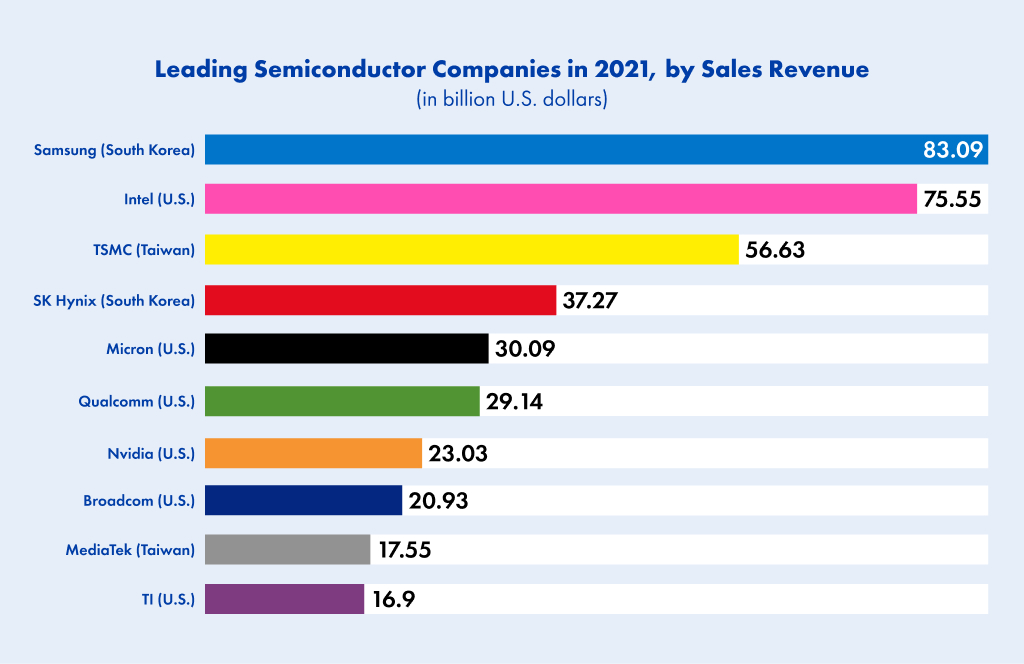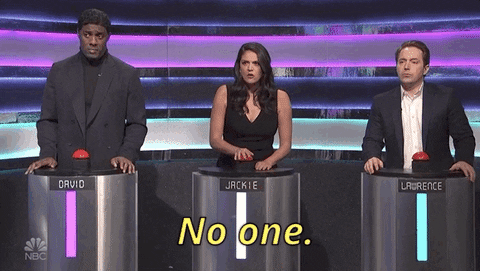Issue #106
Issue #106
Guten Morgen!
Welcome to another edition of the Krautshell! This week, Jonny vents his pent-up frustration about the current public debate on welfare benefits (and politicians’ cynicism) in his House’s View. In addition, our main articles cover a pun-worthy authentication certificate and the role it plays in Brussels’ latest tech debate, a historic court ruling in Berlin regarding last year’s state elections, and some breaking (and possibly explosive) news about the federal government’s upcoming China Strategy. Finally, Anna gives you her take on why the German pension system – for all its advantages – is heading for some serious trouble.
As always, have a great weekend!


Anna Christian
FIRST, SOME SOLID INTEL:
Here a QWAC, there a QWAC, Everywhere a QWAC QWAC
You know those little locks in the left corner of your browser bar that tell you whether a website is secure or not? Well, those little locks have been causing quite a hullabaloo in the European capital this week, and we’re here to tell you why.
In June 2021, the European Commission published a proposal for a regulation on an EU-wide digital ID system, the eIDAS regulation. As a digital identity can contain some of your most sensitive information – like when you had your last prostate examination – you want to ensure your information is safe as you surf the web. One crucial part of this is the connection your computer makes to whatever website you’re on. Enter article 45 of the eIDAS regulation. In a [Kraut]shell: it’s about who to trust to secure websites – public authorities or private companies?
In the Commission’s corner, you have the Qualified Website Authentication Certificates, or QWACs. These certificates are issued by government-appointed bodies and link every website domain to a legal person or entity. The idea here: traceability in the case of phishing or hacking. In the private sector corner (think Google, Apple, Microsoft) you have the root program. These are company-owned programs to vet and certify bodies that tell you, the internet user, whether a website is secure.
Browsers argue that their own vetting procedure is much more rigorous than anything the Commission can put forward, and mandating the acceptance of QWACs is the equivalent of a parent saying to a child “because I say so.” Meanwhile, Commission-aligned actors posit that big tech should not be allowed to decide who is trustworthy or not, and they have the consumer’s best interests at heart. At this point whether the final law will mandate QWACs or not is still up in the air as negotiations continue, but we can expect some more fowl (please laugh for me) play in the near future.
Berlin Goes Bananas
After two failed attempts at world domination and other gruesome behavior, Germany today is a country rightly respected for its liberal constitution based on the rule of law. We have fundamental rights, the separation of powers, and free and fair elections. All the more reason to be upset when Germany’s notoriously dysfunctional (albeit lovable) capital city of Berlin goes ahead and gives our democratic system a bad name. In case you haven’t heard, here’s Berlin’s latest foray into the realm of banana republicanism, and how’s that’s playing out.
Berlin’s Constitutional Court ruled on Wednesday that for the first time in the country’s history, a state-wide election will have to be fully repeated. According to judges, the vote for the Berlin state legislature suffered from “serious systemic flaws” – missing and mixed-up ballots, impossible waiting times, faked results – and was therefore invalid. Not only is this a resounding slap in the face to Berlin’s responsible authorities, but it is a shocking disenfranchisement of 2,5 million eligible Berliners who for the past 14 months have been ruled by an (as it turns out) falsely elected government under Social Democrat mayor Franziska Giffey (whose greatest political achievement so far has been to plagiarize her PhD dissertation and get away with it). If Berlin’s leaders were actively trying to undermine trust in democratic elections, they couldn’t do much better.
Not that most long-suffering Berliners will get too excited about the news. This is the second election repeat announced in a week, after all: In 400 of roughly 2,300 precincts, voters will in the coming months be asked to recast their ballots for the Bundestag elections, for essentially the same reasons. And as reported here before, a possible defeat of the post-Communist Left party could have serious effects on the current constitution of the Bundestag. With all my love for this town, we may soon require international election observers to show the state how things are done. Berlin, du bist so wunderbar.
A New German China Strategy?
This week several news outlets broke stories regarding Germany’s confidential new China strategy draft. Drafted by the Federal Foreign Office, the strategy paper adopts the EU’s approach of framing China as a partner, competitor and systemic rival, although it adds that the latter two classifications are becoming more prominent. The paper also argues that China is increasingly becoming a military actor, whose naval and nuclear capabilities and actions compromise Europe’s security interests. Echoing the sentiments from its allies, Taiwan is noted as being particularly threatened by China’s policy shifts.
In the economic realm, the paper proposes to make German-Chinese economic relations more dependent on respect for human rights in the future. Specifically, Germany should reserve its right to impose import stops from regions with particularly massive human rights violations, thus setting up a mechanism to restrict Chinese imports to Germany. Mandatory regular stress tests for companies deemed critical to Germany’s security are also proposed for those firms which have significant exposure to the Chinese economy.
In a [Kraut]shell, the German China strategy draft does take a tougher stance towards China and breaks from past German mainstream China-policy thinking. The Chinese response to the leaked paper was swift, with the Chinese Foreign Ministry arguing that classifying China as a “competitor and systemic rival is legacy of Cold War thinking”. And while the Chinese outrage came swiftly, it remains to be seen to what extent the draft will still be altered and whether other parts of the government are determined to follow the paper’s approach. As we discussed in last week’s edition, Chancellor Olaf Scholz has been wary of adopting a more hardline approach towards China. However, should the paper’s policy suggestions be implemented, it would mark a closer alignment of the China policies of the US and of Europe.
TAKE A BREAK, GIVE YOUR EYES A REST.

Source: Statista
THE HOUSE’S VIEW:
By Jonny
If You are Poor, it’s Your Fault
We need to talk. Don’t worry, not you and me, we need to talk about political culture in Germany. Once again, we’re talking about the “citizen’s income”, the new basic security system planned by the German government. If you don’t remember what it was all about, just keep this in mind: The traffic light coalition wants to give the unemployed more money. The CDU, as the largest opposition party, doesn’t want that. So far, so normal, but what’s so special about this debate?
What are We Discussing?
How much should a life cost? Not philosophically speaking, but quite literally. The question arises when one calculates the expenses for subsistence level. In addition to rent and heating costs, which the state pays for people on basic security, the life of an unemployed person is currently allowed to cost 451 euros a month. Food, clothing, mobility, cultural activities, everything is supposed to be covered by this. In the eyes of the CDU, these are 451 incentives to look for a job again. The traffic light coalition now wants to increase unemployment benefits to 502 euros. 502 euros are in the eyes of the CDU not 502 incentives, but a few incentives too little, because a few euros too much.
The less someone has, the faster he looks for a new job. So far, so logical, right? Except it isn’t.
Those who are Poor Deserve it
The CDU’s way of reasoning and thinking is based on pseudo-rational logic. Those who don’t work could do so if they only were distressed, pardon, “incentivized” enough. This logic leads us to a second system of German basic security: sanctions. Namely, Germany sanctions the worst felons: Putin, Iran and the unemployed. Anyone who is offered a job by the Jobcenter, a state-run job placement agency, and turns it down is sanctioned and receives even less than 451 euros. A mechanism whose constitutional justification was called into question three years ago by Germany’s highest court. The government has the right to sanction benefit recipients who refuse to cooperate. However, the state would then have to prove the efficiency of these sanctions.
And there is the dog buried, as a nice German saying goes (transl. “the crux of the matter”). While economic-rational logic tells us that someone who gets even less money will certainly accept the next job offer, there are already many studies that say: Nope!
Promote and Demand
We help the unemployed, but only if they help themselves. That is the logic underlying our basic security system. It comes from the logic that underlies almost all Western economic systems. The American dream is probably the most prominent example. And don’t get me wrong, the idea is beautiful, downright romantic: if you really want it and work hard, you’ll have it good. But conversely, it also means that whoever doesn’t have it good probably didn’t work hard enough or didn’t want to work hard in the first place.
However, this is no longer how our economic system works. The truth is that the good chances of achieving something in our systems are primarily inherited. Children of well-off academics become well-off academics again, whereas there are hardly any children of non-academics who manage to get a PhD or a high salary. And they don’t have to, maybe they don’t even want to. And the problems Germany has with unemployment are structural. Many people become unemployed because there are no more jobs for the activities they have learned. Because continuing education usually only becomes an issue when you’re already unemployed and not while you’re still employed.
Bad Style
The CDU complains that the new basic income support is so high that someone on minimum wage doesn’t earn much more than someone with unemployment benefits. And of course, that’s unfair. But is the logic in a rich country like Germany now really that we look at two poor people and the best we can come up with is: one of them should be even poorer? There are many reasons to be against the new traffic light system. Playing two already disadvantaged groups off against each other is not one of them.
This week, Markus Söder (CSU), Prime Minister of Bavaria, blocked the new government proposal as spokesman for the CDU-led federal states in the Bundesrat. Too much money, unfair to low-income earners. Two days later, he showed up for a photo op at the Munich “Tafel”, an institution giving free food to the homeless as well as the unemployed and low-income earners, who don’t have enough money at the end of the month, and praised the important work the Tafel does. This is so absurd that I don’t even want to comment.
House’s View
There is much to criticize about the government proposal. Germany’s spending on social benefits is ridiculously high and the question of who should pay for it is justified. We are heading for the absurd situation of going into recession while officially there is full employment. At the same time, the shortage of skilled workers and job surpluses are higher than ever. The German economic system has “skipped” digitization and is paying for it with horrendous welfare losses on a daily basis. Just like the previous government, the current one must be criticized for doing little to address these structural problems. However, reproaching it for granting the weakest in this country a little more money in times of massive increases in the cost of living is cynical and a perfidious form of reality denial.
LONG STORY SHORT:
- Merkel, (Not) One of the Greats? Angela Merkel was a polarizing figure throughout her 16-year tenure as Germany’s chancellor, though she was remarkably popular for most of that time both in Germany and around the world. This week, however, Wolfgang Schäuble (one of her closest allies) gave an interview conspicuously leaving her out of his list of “great chancellors”. No more Christmas cards for Wolfgang, it seems…
- Next-Level Shuttle Diplomacy: The Greek foreign minister Nikos Dendias caused some amusement this week after a diplomatic expedition gone wrong. Basically, he flew to the Libyan city of Tripoli on the condition that the government’s foreign minister (who has close ties to the unloved Turkish government) would not be there. Finding the minister on the Tripoli runway waiting for him, Dendias promptly took off again. Bye!
- Climate Activists Block BER: After several weeks of gluing themselves to freeways in downtown Berlin, the climate activists of the “Last Generation” (yes, that’s their name) have decided to block the only highway leading to BER, the city’s somewhat infamous airport. As temperatures dropped below freezing this Friday, expect outdoor areas to become a less attractive target in the near future.
WHAT’S ON OUR MINDS:
BOOMER
First, just a brief introduction into our pension system, which is the “umlagefinanzierte Rentenversicherung”, the unfunded pension insurance if translated word by word. Meaning: Germans do not save for their retirement, but the working population is paying monthly premiums that are being paid out to the pensioners.
Not the worst system, tbh, with one crucial deficit: The inventor of the system factored in a “child-factor”, meaning an offset for people raising future premium-payers (aka children). Konrad Adenauer, the first German chancellor, who introduced this system in the 60s discarded this element, and famously said: “People will always have kids”.

Fast forward 50 years, and, well, turns out, they don’t. Birthrates took a sharp decline in the 70s. But before the 70s, they did, and many: Generation Baby Boomer. Now, very soon, the Baby Boomers will retire and expect a nice pension. The problem: Where before around 5 employees contributed to the pension of one pensioner, in 2030 it will be only 1.5.

There have been so many attempts to fix this over the years, with teeny tiny raises of age limits, symbolic cuts to the pensions and negligible attempts to introduce a capital funded supplementation (?). Not a single measure that would have solved the problem, not even close. Why? Because the problem always was years ahead, at some time in the future, and what politician wants to take away benefits from their voters?

Now, it gets imminent. The pension insurance already receives around 100 billion each year from the taxpayers, in addition to the premiums, to be able to pay out pensions. So far, I haven’t heard any attempts from the government to tackle the issue. Just last week, the CDU seems to have put it on their agenda though, trying to work on a concept for a fundamental reform. To get into the details is too much for this WOOM, and I guess it is admirable that someone gives it a try. However, it might have been more promising if they had addressed it while still in power.

